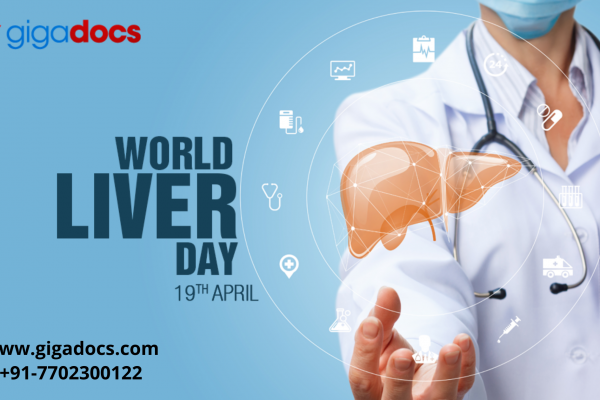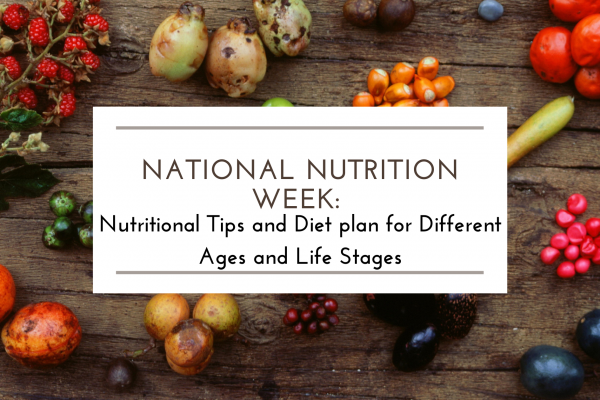Nutrition for kids is essential for their growth and development. Children of all ages need nutrients in their balanced diet which is a healthy mix of carbohydrates, protein, fat and vitamins and minerals. Following a call by the Prime Minister, September will be observed as the nutrition month focusing on the correct amount of nutrition received during childhood that ensures a child’s physical and mental development. Nutrition Month is an excellent vehicle to promote healthy living and as a way to educate the parents.
The right amount of nutrition is essential for a child’s mental and physical development. The nutritional requirements vary from the age of the child and their physical activities. Here’s what your child needs to meet their regular nutritional needs for their growth-
Babies (0-12 months)
At this age, it is all about the milk, including breast milk, formula milk or a combination of the two. Milk forms the building block providing every nutrient with a baby would need for development in their first year of life.
- With a supplement to milk, most of the babies are ready to start solid foods like infant cereal, boiled and mashed vegetables, and fruits. If small babies don’t get their zinc and iron nutritional requirements, parents can switch over to fortified cereals.
- After parents have introduced semi-solid food to their kid, they must not go fat crazy and instead add a healthy amount of fatty foods to their children before the age of two, a healthy amount of fat is important for their brain and nerve development.
Toddlers & Pre-Schoolers (12 months-Five years)
Toddlers and pre-schoolers have increased dietary requirements, they can go about eating a whole lot one day while not eating any on the second day! Though its normal, yet parents must not miss on their nutrients and watch out what they eat.
- Calcium is one of the most important dietary requirements toddlers and pre-schoolers have. Calcium is needed for strong bones, teeth for the young toddlers. Especially when they are growing from babies to pre-schoolers.
- Children who don’t like milk can be given calcium-fortified orange juices, cereals, and oatmeal however, parents must speak with their paediatricians for any calcium supplement recommendations.
- Fibre is essential for pre-schoolers who need fibres for a healthy gut. This is the age where they eat and play with other kids increasing their chances of stomach related infectivity. Parents must keep a healthy mix of whole grains, beans, fruits and vegetables in their diet. The benefits? Fibre prevents heart disease and other conditions, besides aid in digestion and preventing constipation in the young kids.
Grade-Schoolers (Six years to Nine years)
- As kids grow their nutrient requirements and calorie intake also sees a rapid increase. Kids in their age group must have a regular intake of proteins, calcium, and necessary vitamins and minerals. Consider adding a balanced diet comprising of milk, peanut butter, rice, beans, eggs, vegetables and so on.
- Kids in this age group need carbs (sugars), fats, and sodium. Parents should consider all these food’s in moderation too much can lead to obesity and other health problems.
Pre-Adolescent & Teens (Nine years and Up)
As puberty kicks in this age group, young kids need more calories to support the hormonal changes. Parents must refrain the junk food habit in this age and gave healthy alternatives like dry fruits to their kids. This is the age where body fat concerns become primal, where kids may stop eating carbs for the fear of gaining weight. Parents must watch what their kids are eating and restrict them from fast foods and carbonated drinks.
- This age group is the time kids start to become conscious which may lead them to skip food or other unhealthy behaviours. Parents should be aware of the hormonal changes their kid is going through.
- In this age group, like calories, their calcium requirements are higher. Calcium is of primal importance during the tween and teen years for building bones and strong stature. Parents must encourage bodybuilding foods like milk, milk products, and not forget dry fruits as a daily supplement.
- A child’s gender plays an important role in what kind of calorie intake they have. For instance, female’s need slightly fewer calories than males. Teen girls need more iron than their male counterparts and males need slightly more protein than girls. Parents must design their diet plans likewise.
Meeting Iron Requirements
Iron is necessary for the proper transfer of oxygen in the blood; thus, kids must not miss on their essential nutrient. Milk decreases iron absorption besides irritating the intestine lining, causing small amounts of bleeding through the stool (poop). Parents must watch out for their warning signs. Additionally, iron deficiency can affect a kid’s growth and may lead to behavioural and learning problems. In extremities, this can cause iron-deficiency anaemia.
To help prevent iron deficiency parents must:
- Limit the milk intake of their children to about 2 to 3 cups/ a day.
- To meet a child’s iron requirements, parents must add iron-rich food like spinach, meat and fish.
- Add Vitamin C foods like lime, tomatoes, broccoli, oranges, which improve the body’s iron absorption.
Parents must be in touch with their digital doctor, if they find their kid is not eating well, besides getting their toddlers are checked for iron-deficiency anaemia a common nutrient deficiency observed in small kids. Parents must never a vitamin or mineral supplement without first discussing with a paediatrician.
Contacting A Digital Paediatrician on Gigadocs
Although getting children to eat healthily is a constant battle many parents face, it’s one well worth fighting. A healthy child becomes a strong foundation for a healthy adult, which is only possible with parental care and support.
- Deficiency of nutrients can be attributed to a host of illness in young kids like seasonal dizziness, sore throat, flu, minor colds, constipation or diarrhoea. Thus, adding a healthy mix of nutrients in your kids’ balanced diet ensure they grow well and lead a healthy life.
- Consulting a doctor face to face for kids during Coronavirus may prove to be dangerous, instead, parents can reach out to a digital doctor on the Gigadocs intelligent practice management E-Healthcare app.
Book a digital doctor for your child on the Gigadocs app, available on the Appstore and play store.
To Download Gigadocs app-
- IOS App – apple.co/2W2iG4V
- Android App – bit.ly/33AQoRC
To know more and schedule a Virtual Consultation demo, e-mail, at info@gigadocs.com




